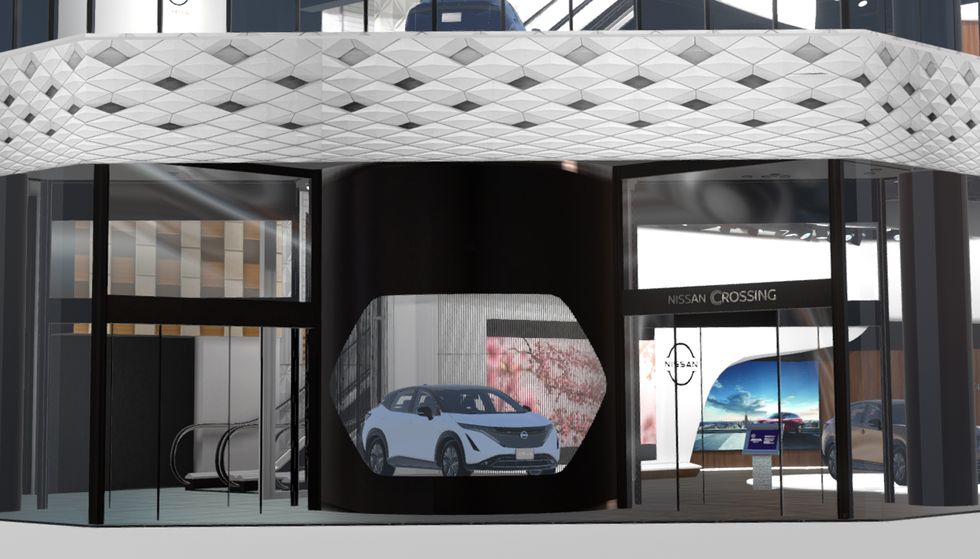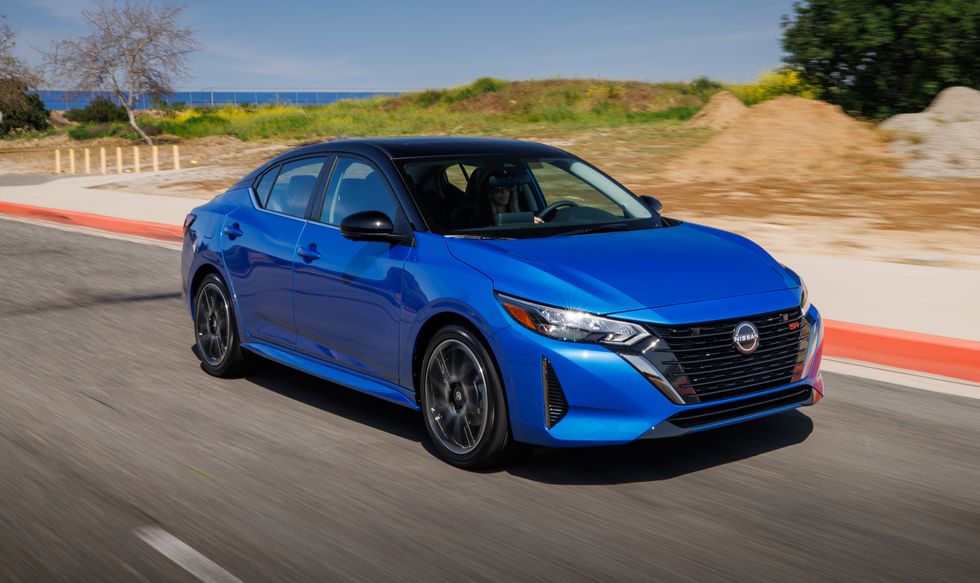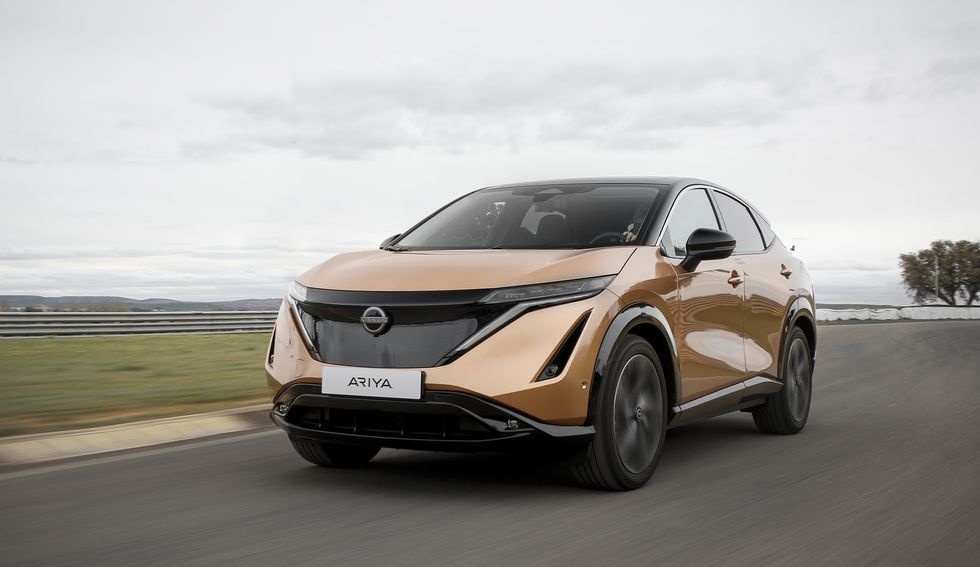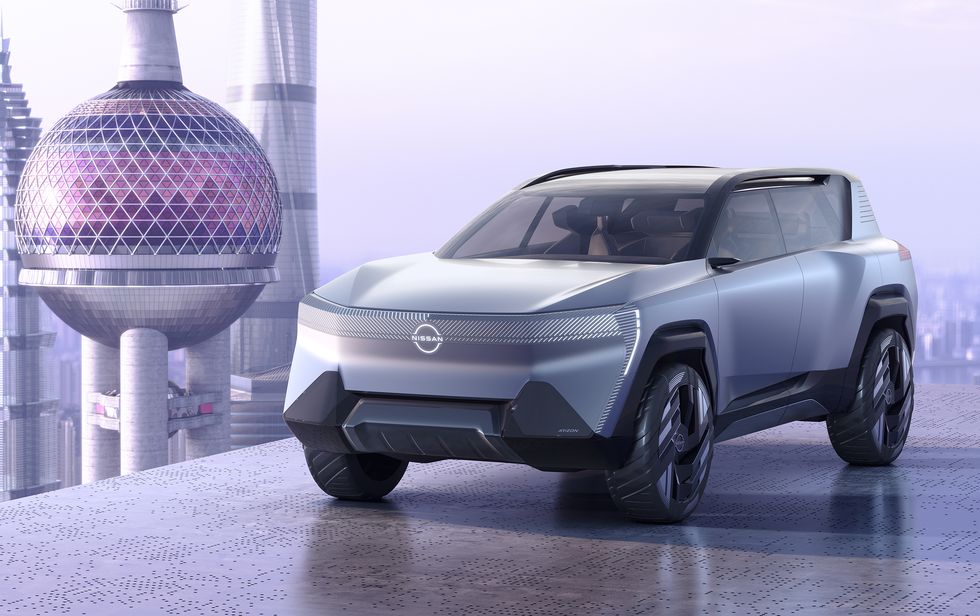At multiple points in history, Nissan has been a supremely revered car company. From the early Z-model sports car renaissance of the 1970s to a nearly simultaneous launch of two era-defining models (the 2009 Nissan GT-R and 2010 Nissan Leaf), the history coming out of Yokohama is lined with great successes. Plus, the brand is partially responsible for the mid-aughts JDM-craze and its respective subcultures, including grassroots drifters favoring the S13 240sx as well as being the whip of choice for none other than the late 2 Fast 2 Furious star Paul Walker.
But the brand has also faltered at times, sometimes independently of its product. Late in 2019, Nissan announced it was cutting 12,500 workers globally over the next three years, amid a 95% net income drop and CEO scandal. Compounded by the COVID-19 pandemic, Nissan’s global sales volume dropped sharply each year since 2017. At its peak in 2017, Nissan’s global sales reached 5.7 million units, while its 2022 volume plummeted to 3.3 million units.
Nissan has played its cards well despite an industry-wide lull. Launching the new Z sports car, revamping the Frontier and Pathfinder, and even building the all-new Ariya EV on the heels of the infamous Leaf, Nissan is setting itself up for future successes.
And it’s Allyson Witherspoon’s job to make you all want to buy these cars, as she was recently promoted to the role of Corporate Vice President and Global Chief Marketing Officer at Nissan. With a tenured career as an executive at multiple manufacturers including Mercedes-Benz, Volvo, and Infiniti, we sat down with her to get some insight into Nissan’s plan to sell its way through the 21st century.
Autoweek: Can you tell me more about your new role and how your job has changed?
Allyson Witherspoon: For the last four years, I’ve been the US Chief Marketing Officer for Nissan USA, specifically for Nissan. Now, I will transition to become a Corporate Vice President as well as Global CMO and have responsibilities for Nissan plus Infiniti branding and marketing. So I’m responsible for brand marketing, product marketing, as well as merchandising a lot of stuff.
Autoweek: Let’s talk about Gen Z and Millennial buyers and different marketing tactics including Tik Tok, augmented reality, and virtual reality. How are you effectively reaching those younger, perhaps more cost-conscious, consumers?
Witherspoon: What’s interesting about marketing is that, regardless of the demographic, the fundamentals are reaching the consumers where they are. It’s really about understanding where those consumers are when it comes to platforms. They’re not going to be on linear TV—they’re going to be on something that’s much more streaming or digital-based. That’s the channel part of it, but then how you reach them and what you say to them, is equally if not more important.
When thinking about Tik Tok, it’s not enough to just put your commercial on Tik Tok. That’s not going to work, right? So you need to have content that’s going to be relevant and engaging and able to kind of draw people in. We kind of rebooted our social media strategy a couple of years ago and are starting to focus on vertical video. So there’s that part of it, but also, how do we start to use influencers to help us tell our story? How do we understand what the trends are?
Autoweek: Talking about approaching cost-conscious buyers, Nissan still offers very affordable cars even when car prices are going up right now. What’s the marketing strategy on a car like a Sentra or a Versa in terms of saying, ‘Yes, it’s affordable, but it’s also still worthwhile and a good car that you’re going to enjoy’?
Witherspoon: The big strategy behind that was, we didn’t compromise anything when it came to how we planned for the vehicles and how we package the vehicles. You can have this beautiful package but you can have all of that at a really accessible price. You don’t want to approach consumers and say, like, ‘Oh, you want discounts or cars for cheap.’ Consumers don’t like that. For us, it was all about accessibility, and you don’t have to compromise. I think that’s a fundamental belief for us at Nissan. Consumers don’t need to buy the luxury car—they can have all of that in this exciting affordable package.
Autoweek: What’s the relationship between Nissan dealerships and the marketing department? How do you work together to make that TV commercial to in-person buying experience a seamless transition?
Witherspoon: The dealers want to understand what we’re doing on the OEM side, and how can they leverage that. It’s about opening up the dialogue, really being candid and transparent and sharing what we’re doing, and then getting them to buy into it. Over the last four years, we spent a lot of time with our marketing subcommittee—this group of dealers all across the country—and they work with us hand-in-hand on developing all of our strategies.
Through that, we’re able to communicate it to the larger dealer body and make sure they understand it in advance, so they can optimize their plans. A lot of training too, particularly with the Ariya given that it’s going to be a different type of buyer. Making sure that dealers are much more digitally savvy and tech-savvy, and that they’re going to be interested in these things.
Autoweek: Given Nissan’s electric alliance with Mitsubishi and the launching of jointly shared EV platforms, is that something that you’ll be engaged in marketing? Or are you just focusing on Nissan?
Witherspoon: No, I think I’ll be part of those discussions. What we are working on is how we leverage some of our bigger partners like Google and Meta to maximize those relationships at a company level. And how do we do a lot more sharing? Sometimes what we found with the dealers is that the more we’re able to share, the more we can pick up new product information and education. I think doing that across the brands will also be beneficial to us.
Autoweek: Speaking of Meta, have you received feedback from people on AR/VR technology? There can be a technology barrier for some people in understanding how it works. What can customers expect from Nissan on that front?
Witherspoon: I think AR is a little bit of an easier barrier because you can be leveraging AR and not even really realize that’s what that is. Sharing some of the work that we’re doing, we’re starting to see some people understand it inherently and other people are like, ‘Oh, I didn’t realize that was AR.’ It goes back to reaching consumers where they are with the types of experiences that they’re going to be interested in. We’ve been using AR for a while now, and what we’ve been seeing is that whenever we have AR experiences on their platforms, there’s a higher conversion to the kind of key actions that we have on the website.
The combination of VR and AR works really well too. We have a full virtual reality experience for the all-new Ariya, and that allows you to really understand and get inside of the car, and experience some of the technology like eForce and even ProPilot Assist. You can take out some of the physical barriers that way.
Autoweek: Let’s talk about concepts as marketing tools. What’s the strategy for marketing a concept in terms of getting excitement going? And then funneling that excitement into either current models or the anticipation of a potential model?
Witherspoon: The great thing about the automotive industry is that news works across everything. Even when you have news on a model that is a concept, part of that will spill over. It’s just a matter of capitalizing on people who are fans or people who are going to be interested in the segments of that vehicle, and also showing them what else is available today.
A few years ago, we wanted to focus on our Nissan Next transformation plan, which was our kind of entirely new lineup. We’ve been focusing a lot more over the last couple of years on production vehicles because that has been what our news is. We may go back to a little bit more than concept cars, but I think we want to have the balance of both. And we want to ensure that concept cars can have a halo impact on current production models.
Autoweek: Nissan has been a longtime enthusiast brand. And bringing back the Z was a really big, exciting thing for enthusiasts. How much did you think about the legacy of the Z when marketing it?
Witherspoon: It actually broke our website when we launched it! I think, especially with the Z, it is really about the legacy of that vehicle. When you look at the design, it’s inspired by a lot of the previous generation Z models. On a vehicle like that, that has such a large following and such pure fans—we want to really tap into that. It’s a celebration, really, and we want to celebrate those fans, right? I’ve been fortunate enough to be driving a Z for a couple of weeks now, and it’s just great to see people’s reactions. I get stopped on the highway—someone was on a motorcycle that was kind of following me, and I was just like, you know, that’s love.
My older brother had a 240sx and then he had a 300zx. And the 300zx was like this beloved car in our family. It’s actually how I learned how to drive a stick. And he let my dad borrow it for a little bit, which meant I got to borrow it. We still have it in the family. But that’s what the Z is to people. It’s something that you can pass down; my brother handed it down to his son. That’s what the Z community is.
Does one era of Nissan stand out to you as particularly special? Please share your thoughts below.
Associate Editor
A New York transplant hailing from the Pacific Northwest, Emmet White has a passion for anything that goes: cars, bicycles, planes, and motorcycles. After learning to ride at 17, Emmet worked in the motorcycle industry before joining Autoweek in 2022. The woes of alternate side parking have kept his fleet moderate, with a 2014 Volkswagen Jetta GLI and a 2003 Honda Nighthawk 750 street parked in his South Brooklyn community.
Read the full article here






